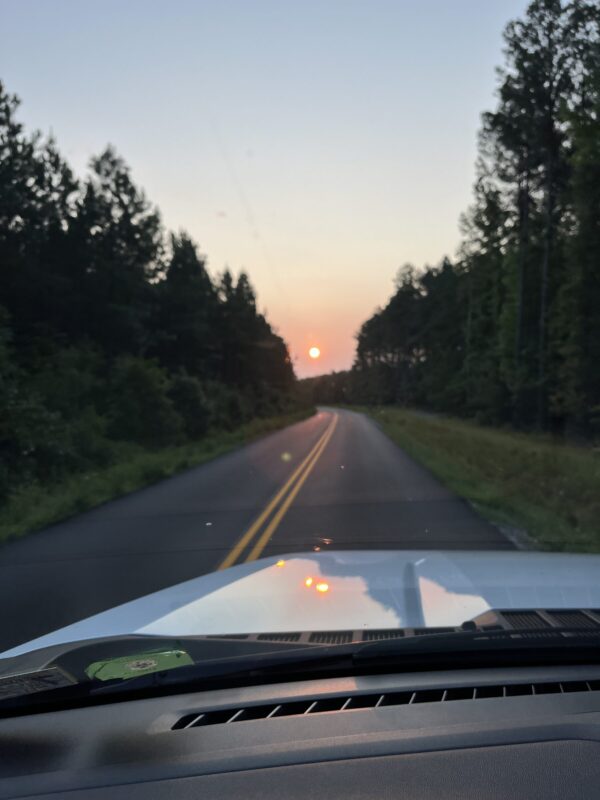Facing up to the dangers of rising temperatures with IPF
People with pulmonary fibrosis should be cautious when the heat is on
Written by |

A Newsweek article from a few weeks ago was headlined, “Washington, D.C., Endures Most Blistering Heat Wave in Nearly 100 Years.” As I write this, another article, this one from The Washington Post, just dropped, warning that “D.C. area begins fifth heat wave amid one of its hottest summers on record.”
But my column this week isn’t about climate change. That discussion would far exceed both my word limit and my editor’s threshold for me testing boundaries. A more important topic to the pulmonary fibrosis community is the relationship of weather extremes to our health.
When I was diagnosed with idiopathic pulmonary fibrosis (IPF) in January 2017, I knew nothing about this chronic, progressive disease, which has no cure. During the course of my journey, I’ve learned firsthand how the weather can affect an IPF patient. Since my bilateral lung transplant just over three years ago, the weather has continued to affect me — just in a different way.

Smoke in the distance from fires in Canada and the western states at sunrise. (Photo by Sam Kirton)
During July, my state of Virginia and others nearby endured extreme heat and humidity. The days when the air temperature was at or above 100 degrees were difficult for anyone with respiratory issues. Even when the temperature didn’t reach the century mark, the heat index was difficult for any patient using oxygen. You may hear the heat index referred to as the “feels like” temperature.
Extreme heat can make even routine tasks for an IPF patient more difficult. Simply breathing in hot air can cause inflammation or further exacerbate lung diseases.
An additional risk for lung patients is the decreased air quality. When the sky appears hazy, it’s not your imagination. During periods of extreme heat, pollution levels tend to have a greater impact on air quality. You’ve likely heard about air quality alerts, with recommendations that even the healthy population reduce or stop outdoor activity. The impact for those with lung conditions requires even greater precautions.
Beyond the heat and humidity in the past week, smoke from fires as far away as Canada blanketed my area and worsened the air quality here. On one of my early-morning drives to a clinic appointment, I could see the smoke’s effect in the colors of the sunrise.
Another consideration with heat is the impact on medications. Before I received my lung transplant, I was taking Esbriet (pirfenidone), which made me extremely sensitive to the sun. Even brief exposure to sunlight made my skin feel as if it were on fire. I thus applied an SPF 50 sunscreen and wore long sleeves, long pants, and a hat whenever I was outdoors.
Heat after transplant
In the post-transplant portion of my disease journey, I face some of the same challenges, but for a different reason. I’ve shared before that a transplant isn’t a cure for IPF; it’s better described as trading some medical concerns for others that also require a lifetime of medical surveillance.
The most common cancer among transplant patients is skin cancer. The antirejection medications I must take daily make me more susceptible to severe sunburns. I still cover myself outdoors to avoid that; I may have missed an investment opportunity by not buying stock in my favorite sunscreen! Additionally, I see my dermatologist annually to help identify skin issues early.
Many heat and air-quality issues continue to follow me today. Any condition that can cause inflammation or irritation of the airway is an issue for my new lungs. Taking precautions, such as limiting my time outdoors during extreme heat, is prudent. When I can smell smoke from wildfires affecting air quality, I’ll wear a mask when I must be outdoors.
Be aware of how your body reacts to weather extremes and take appropriate precautions. By doing so, you’ll be able to make every breath count.
Note: Pulmonary Fibrosis News is strictly a news and information website about the disease. It does not provide medical advice, diagnosis, or treatment. This content is not intended to be a substitute for professional medical advice, diagnosis, or treatment. Always seek the advice of your physician or other qualified health provider with any questions you may have regarding a medical condition. Never disregard professional medical advice or delay in seeking it because of something you have read on this website. The opinions expressed in this column are not those of Pulmonary Fibrosis News or its parent company, Bionews, and are intended to spark discussion about issues pertaining to pulmonary fibrosis.





Sandy Pinkston
Thank you for not discussing the topic of climate change. SE Texas here and the heat and humidity are oppressive as they are every year. This is my first Summer with IPF and the weather here is taking its toll on me more so than ever. Can't wait for our two months of winter.
Samuel Kirton
Sandy,
Thanks for reading my column and your comments. I hope you find ways to make the heat easier on you as your IPF progresses.
Sam ...
Andrew Partridge
Wondering why the writer’s Dermatologist only wants to see him once a year. My Dermatologist want to see me every quarter for a full body skin screen.
Samuel Kirton
Andrew,
Thanks for reading my column and for your comments. I have been diligent about staying covered to include a Stetson which is my hat of choice. I also use sunscreen on exposed skin. My skin is fair so I would burn easily without taking these precautions. Each of our journeys is unique to us. I am fortunate that I only have to see my dermatologist annually.
Sam...
Kathleen Calvert
Thank you for this info. I enjoy the outdoors, and will follow this valuable advice.
Samuel Kirton
Kathleen,
Thanks for reading my column and for your comment.
Sam ...
John Fromularo
I have interstitial lung disease for 4.5 years and the first 3 years were fairly normal. Then an exacerbation and great loss of lung capacity. It seems like a short time from your diagnosis to transplant. Do you have any other underlying issues? Autoimmune disease?
How was your transition to "normal life" after your transplant. I'm going to get evaluated for transplant soon.
Thank you.
PS I live in Florida and agree, when the weather is 100 degrees, outdoor breathing is very difficult.
Samuel Kirton
Hi John,
Thanks for reading my column and for your questions. At the time of the onset of symptoms that led to my diagnosis I considered myself to be fairly healthy. My disease progression stair-stepped from Jan 2017 until the mid to late Summer of 2019. I began to need supplemental oxygen I started transplant testing in 2020 however that is when Covid-19 began to surface. I continued to decline. During my evaluation they discovered i had some acid reflux and sleep apnea. There was nothing else.
Since my transplant I am more active. I hope you understand that there are a whole new set of issues with transplant which dictate a lifetime of medical surveillance. I would absolutely do it again because of what I have been able to do since I received my bilateral lung transplant.
Sam...
Rebecca
Just wanted to thank you for writing about your experiences. I'm myself who's diagnosed with PF at age 38. After small stint in the hospital during flare up. I was informed That I had sleep apnea, COPD, and of course i already knew i has asthma. Also, on treatment for asthma for 13 years or so. I was put on Supplemental oxygen. There are so many things we lose with this disease, Things we love to do, Places we once loved to go, and our energy level.
It's really good to know, but we are all out here with each other being supportive. Not everybody understands why I don't want to go to their apartments and go up the stairs to see them. It's because i'm ill. I still push myself to work, but I can only work ten hours a week. That's even pushing it unfortunately. I remember working double shifts back-to-back. Full-time work. I Loved-it! Now I shake all the time.
And I can barely take a shower. Getting an out of the bath tub is a very rare occasion. One thing I really don't like about. It is the fact that exercising it's so difficult for me so ive gained weight. Most of the time, i'm not even hungry so a lot of the time I barely eat anything and still yet, i gain. I know it's due to inactivity. These days I lay in my bed and I try to do leg lifts and such. I don't follow any sets. I just doing as I am able to do them if I can do 10 at once. And then stop for the day I will. On the other hand if I can do 20 and then do 10 more and then do 3 I will do that too. It just depends each day. What I can tolerate.
It's like being in a big crowded room where nobody close to you can really see what's happening and what you can't do anymore. Since i'm taking up the whole page here, I'm gonna cut it short now and say thank you.for being here. You are appreciated.
Samuel Kirton
Hi Rebecca,
Thanks for reading my column and for sharing your story. I applaud what you're doing to remain active on your terms. I am not sure where you are located. Do you attend any support group meetings wither in-person or virtually? If you do not have a support group the Pulmonary Fibrosis Foundation has a support group locator tool. If that does not work for you please come back and tell me where you are located so I might be able to help you find a group.
Sam ...